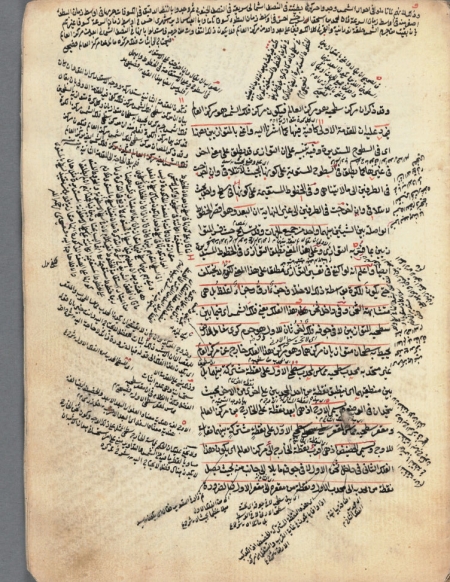
In the 19th and 20th centuries, science became much more specialized and professionalized than it had previously been. Scientific publications multiplied, and whole new fields of research emerged.
Houghton Library's History of Science collection provides insight into the efforts of scientists working during this important time.
Magnetism and Electricity
The collection owes much to David P. Wheatland, Class of 1922 and founder of Harvard's Collection of Historical Scientific Instruments. Between 1941 and 1991, Wheatland gave over 4,600 rare scientific books to Houghton. His gifts reflect his special interests in magnetism and electricity, two subjects that received a great deal of attention in the 19th century.
Items of note donated by Wheatland include manuscript letters from George Louis Ampère and Hans Christian Oersted, and published works from Georg Simon Ohm, Michael Faraday, and James Clerk Maxwell.
A printed catalog of Wheatland’s electromagnetism collection may be consulted at Houghton Library. The papers of Edwin Herbert Hall, a 19th-century Harvard professor of physics, further enhance Houghton’s collection of work related to electromagnetism.
Evolutionary Biology and Experimental Psychology

Outside of physics, other modern scientific fields well-represented in Houghton’s collection include evolutionary biology and experimental psychology.
One of the most important moments in 19th-century science was undoubtedly the 1859 publication of Charles Darwin’s On the Origin of Species. In addition to two first-edition copies of this work, Houghton’s collection also includes Darwin’s manuscript draft for one of its pages and letters to other scientists.
Louis Agassiz, founder of Harvard’s Museum of Comparative Zoology, was a prominent critic of Darwin’s work, and his correspondence with Darwin is included in Houghton’s collection of his papers.
Harvard led the way in the establishment of experimental psychology, in large part through the efforts of professor William James. Houghton holds hundreds of James’s books, letters, notes, drafts and drawings, and several electronic finding aids are available for this material. This one is a good place to start.
Computer Science
Harvard physicist and mathematician Howard H. Aiken (1900-1973) initiated the graduate program in computer science at Harvard, and was a leader in the development of four large-scale calculating machines, He is perhaps best known for his role in the development of the IBM Automatic Sequence Controlled Calculator (ASCC), called the Harvard Mark I, used in the war effort during World War II. Some forty-four books from Aiken's personal library shed light on the early days of computer science.
Popular Scientific Literature
Houghton’s collection also features many examples of popular modern scientific literature.
A majority of the books intended for younger audiences concern natural history. One of these, First Lessons in Botany, is by Asa Gray, a Harvard professor of botany and Darwin’s close friend and correspondent.
Several periodicals in Houghton’s collection, including The Boy’s Own Paper, Popular Science Monthly, and Science Digest, are interesting for what they reveal about the popular reception of scientific ideas.
Accessing These Materials
Houghton's history of science collection can be located in HOLLIS by search by author, title, or subject. There is also a guide emphasizing material for undergraduate concentrations.